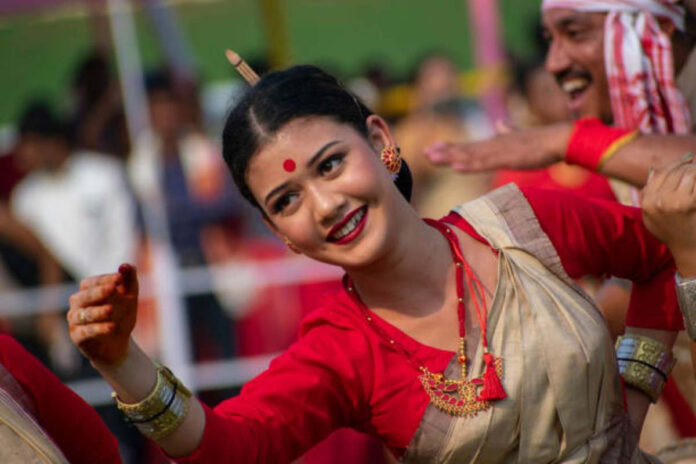Guwahati, OCT 3
In a major cultural win, eight traditional products from Assam, including unique varieties of rice beer and iconic food items, have been granted Geographical Indication (GI) tags by the Geographical Indications Registry in Chennai. This acknowledgment serves as a testament to the rich cultural heritage of the Bodo community.
The Bodo Traditional Brewers Association secured GI tags for three distinct rice beer varieties, each with unique flavours and historical significance.
Leading the list is Bodo Jou Gwran, a potent brew with 16.11% alcohol content, the strongest among the Bodo rice beers. Next is Maibra Jou Bidwi (locally known as Maibra Zwu Bidwi), a ceremonial beverage served as a welcome drink, prepared from fermented half-cooked rice. The third variant, Bodo Jou Gishi, continues the tradition of rice-based alcoholic fermentation. Rice beer holds an ancient cultural significance among the Bodo people, who regard it as a gift from Lord Shiva and often consume it for its medicinal properties. In addition to beverages, four notable Bodo dishes also earned GI recognition. Bodo Napham, a fermented fish dish prepared over three months, Bodo Ondla, a rice powder curry infused with garlic and ginger, Bodo Gwkha, a festive dish enjoyed during the Bwisagu festival, and Bodo Narzi, a semi-fermented delicacy made with jute leaves, all reflect the rich culinary traditions of the Bodo community. Adding to the list, the Bodo Aronai, a traditional cloth symbolising the Bodo culture, also earned a GI tag. Known for its intricate designs inspired by nature, it is customarily used to honour guests. These GI tags not only provide legal protection but also ensure the preservation of these culturally significant products. Assam Chief Minister Himanta Biswa Sarma congratulated the people of Assam and the Bodoland Territorial Region (BTR) for this achievement, highlighting the importance of recognising the region’s unique heritage.
The recent GI tags build upon previous acknowledgments for Bodo items, including the Bodo Keradapini, Gongar Dunjia, Dokhona, Bodo Eri Silk, and others, further solidifying the importance of Bodo cultural contributions on a national scale.



























